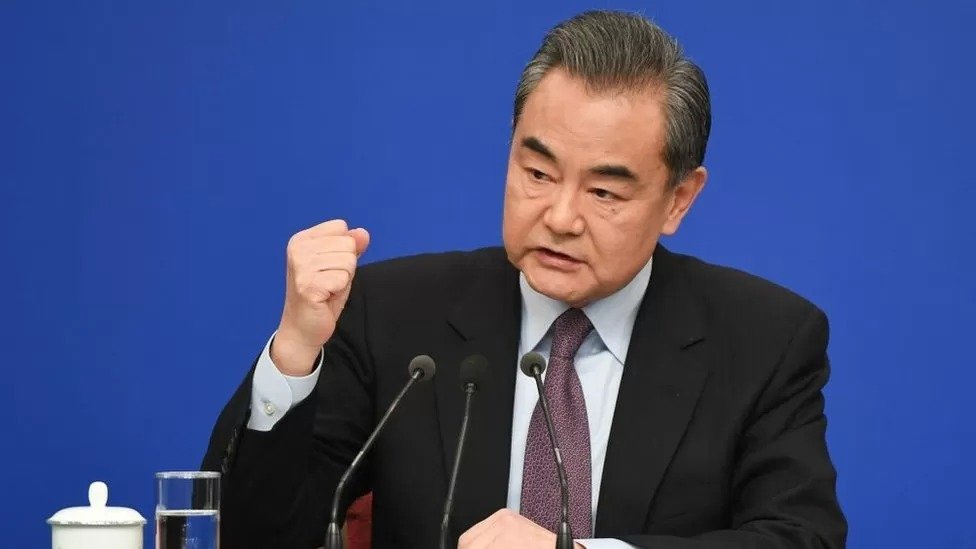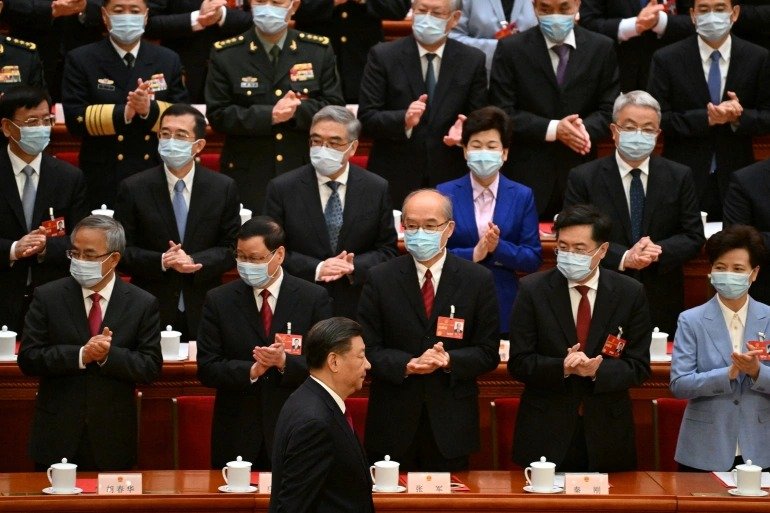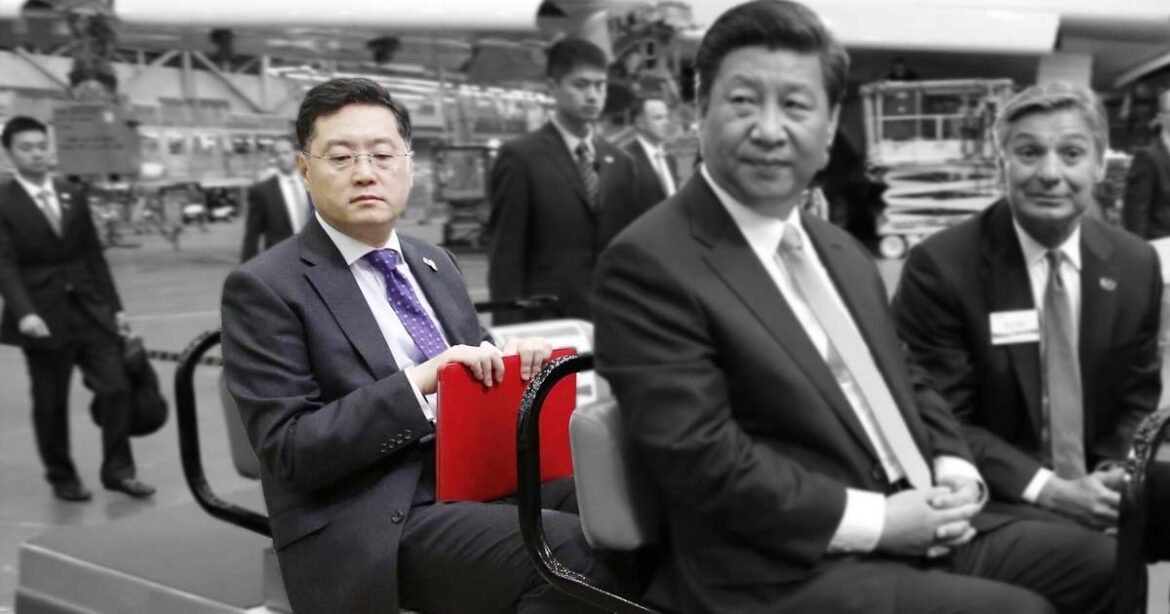Senior Chinese officials have frequently vanished from public sight, only to be later disclosed by the Communist Party’s disciplinary watchdog that they were detained for investigations as part of President Xi’s anti-corruption campaign
The root of all speculations began in late June 2023 when China’s foreign minister Qin Gang cancelled his scheduled meeting with the European Union’s foreign policy chief, Josep Borrell. According to the EU’s ambassador to China, Jorge Toledo, Josep Borrell, and Chinese diplomats were expected to discuss trade, human rights, and the war in Ukraine. Ever since the 25th of June Chinese foreign minister’s meeting with Sri-Lanka, Vietnam, and Russia, Qin has not performed any official duties.
Qin Gang gets replaced without any Explanation
As Qin Gang has been out of the public eye for a month without notice, his absence is now under the heap of heavy speculations following the retrieval of former Foreign Minister Wang Yi replacing Qin Gang after a cabinet meeting on 25th July 2023. No specific reasons were given substantiating the issue, henceforth a new mystery is born.
Some speculations led to Qin’s case being relevant to Xi Jinn Ping’s case in 2012 and Jack Ma’s case. The 57-year-old Qin Gang, seen as a close associate of Chinese President Xi Jinping, was one of the youngest appointees to the post in China’s history since last December. Qin Gang was China’s official ambassador to the US and in less than two years in the role he gained a reputation as a tough-talking “wolf-warrior”. Before that, he had been a foreign ministry spokesman and had helped organize Mr. Xi’s trips overseas – which allowed him to work closely with China’s leader. Critiques believe Qin’s potential was outshining others under the shadow of power struggles which led to his fall. Power play and root dismissal have now left China with a bare face on the global podium.
Wang Yi
At 69 years old, Wang Yi is already China’s top diplomat, serving as the head of the Communist Party’s Central Foreign Affairs Commission. However, unlike many other countries, the Chinese foreign minister does not hold the most authoritative position in the country’s diplomatic affairs. Other influential figures within the Chinese Communist Party’s leadership, including the director of the Central Foreign Affairs Commission, hold more significant roles in formulating foreign policy.

Wang is also known for being one of the prominent “wolf warrior” diplomats, who often adopts a confrontational approach and combative rhetoric when dealing with those who challenge Beijing’s stance. Particularly, he has established a reputation in the United States. During Yi’s meeting with US Secretary of State Antony Blinken in June, Yi asserted that Washington’s “misperceptions toward China” have led to misguided China policies.
Shadows of Invalid Claims
Qin Gang’s removal from his position as China’s foreign minister could have been triggered by any action, even minor, that posed a threat to the ruling Communist Party’s hold on power. His rapid rise to power might have also caused concerns, as it could have potentially led to the downfall of someone else within the party’s hierarchy.

As days are progressing, it’s getting assumed that the rivalry within China’s Communist Party used Mr. Qin’s moral indiscretion to get him under the shadow of the potential breach of Party discipline. The possibility that some sort of health issue played some part in this also can’t be completely ruled out but maybe that too has been used in some sort of political power play referring to Xi Jinn Ping’s 2012’s incident. What made his dismissal even more surprising was that Qin Gang seemed to have strong support from China’s leader, Xi Jinping, who personally brought him back from his ambassadorial post in the US and also signed Qin’s exemption paper.
Removal of Qin’s Digital Presence
By Wednesday morning of 26th July, all mentions of the 57-year-old Qin Gang had disappeared from China’s foreign ministry website. Any attempts to search for his name on the website returned no results, and previous articles about his diplomatic engagements displayed a message indicating that the page either “does not exist or has been deleted.” However, it’s worth noting that his name was still present on other official Chinese government websites, such as those of the State Council, the Ministry of Commerce, and various state media outlets. State media did not provide any explanation for Qin Gang’s dismissal, but according to an expert, the complete removal of his digital presence suggests that he may have lost favor within the party.
Did Qin Gang got Purged?
China analyst Bill Bishop commented in his Sinocism newsletter that if Qin were a respected and healthy member of the party, such “digital erasure” would not likely occur. Another expert, Neil Thomas, a fellow specializing in Chinese politics at the Asia Society Policy Institute, a US think tank, also expressed on Twitter (now rebranded as “X”) that emerging evidence indicates this could be a political purge.
But the potential facts of personal life scandals and continuous inconsistencies due to health conditions lead to a contradicting aspect. Western mainstream media often gravitates toward “disappearance” stories in China, as they provide an opportunity to portray communism in a negative light and depict the state as a brutal entity capable of arbitrarily removing individuals through arrest, execution, or exile. In contrast to the West, where public figures and politicians involved in scandals might choose to lay low and avoid media attention, the same behaviour in China is frequently interpreted by Western media as evidence of a state-led communist purge targeting the individuals in question. This pattern can be observed in cases like Jack Ma of Alibaba and tennis player Peng Shuai, where their decision to maintain a low profile is often portrayed as a forced action rather than a voluntary choice. China has a much more culturally sensitive rendering of “public face” than the West. Chinese people are, above all, much more sensitive and considerate in what they publicly profess than Westerners are. Leading to the fact that Qin Gang might not be “purged.”
Wang Yi’s Influence on Wolf Warrior Stereotype
It should be noted that the actual post of China’s “foreign minister” is not truly the same as how we understand it in the West, but rather more of a figurehead or delegate role which does not hold policymaking power; that lies with the politburo.
This is where Wang Yi’s role becomes significant. Wang, who has resumed his previous position, is a member of the Politburo, a crucial body at the core of power in the communist state. Within the Politburo, he also serves as the Director of the Foreign Affairs Commission. As a result, the real authority in China’s diplomatic decision-making lies with him under the leadership of Xi Jinping, rather than with Qin Gang, who held a lower-ranking position as foreign minister.
Wang Yi is known for his extremely dovish approach, characterized by a moderate, restrained, and soft-spoken form of diplomacy. This style was a key factor in his previous success while serving in the same office. Notably, he stands in contrast to the “wolf warrior” stereotype, presenting a different and more conciliatory approach to international relations.
Dovish Diplomatic Approach
Presently, China’s diplomatic approach is shifting back towards a “dovish” phase. After distancing itself from the US for several months following the “spy balloon” incident earlier in the year, Beijing is now making efforts to re-engage with Washington and its allies more positively. The primary goal of this strategy is to use diplomacy to ease political tensions, prevent the US from forming multilateral alliances against China, and avoid the escalation of a Cold War-like strategic environment, especially in light of developments in Ukraine and Taiwan.
China’s objective is to promote stability, and in such situations, hawkish individuals like Qin Gang are not typically “purged” but rather removed from the spotlight. This approach also aligns with the reassignment of Zhao Lijian, who was moved from his role as China’s Foreign Ministry spokesperson to a less prominent position, illustrating a similar pattern of handling personnel changes to achieve a more conciliatory diplomatic stance.
Assumptions Indicating Possible Detention
In the past, senior Chinese officials have frequently vanished from public sight, only to be later disclosed by the Communist Party’s disciplinary watchdog that they were detained for investigations as part of President Xi’s anti-corruption campaign. These abrupt disappearances have become a recurring occurrence under Xi’s leadership. Regarding Qin Gang’s situation, it remains uncertain whether any disciplinary actions have been initiated or will be taken against him.
Such information gaps are a regular occurrence in the Chinese political system, intentionally designed to lack transparency. The ruling Communist Party exercises full control over all aspects of the government, making decisions behind closed doors and keeping the inner workings of the party shielded from public scrutiny.


